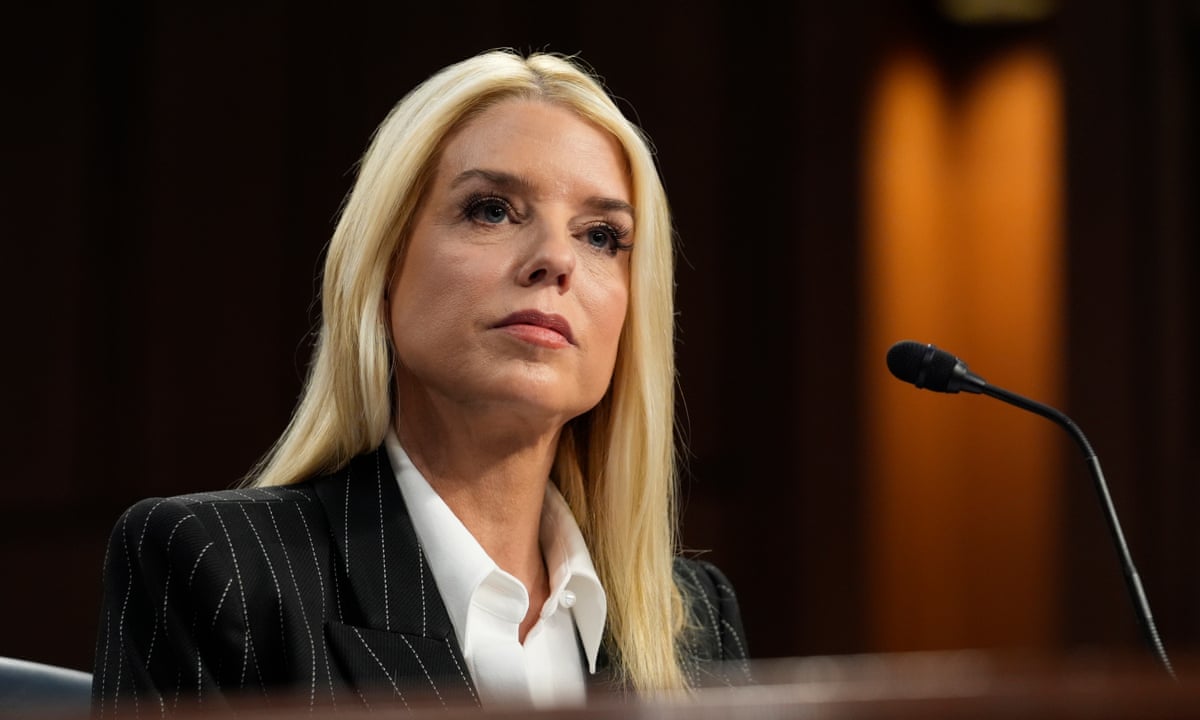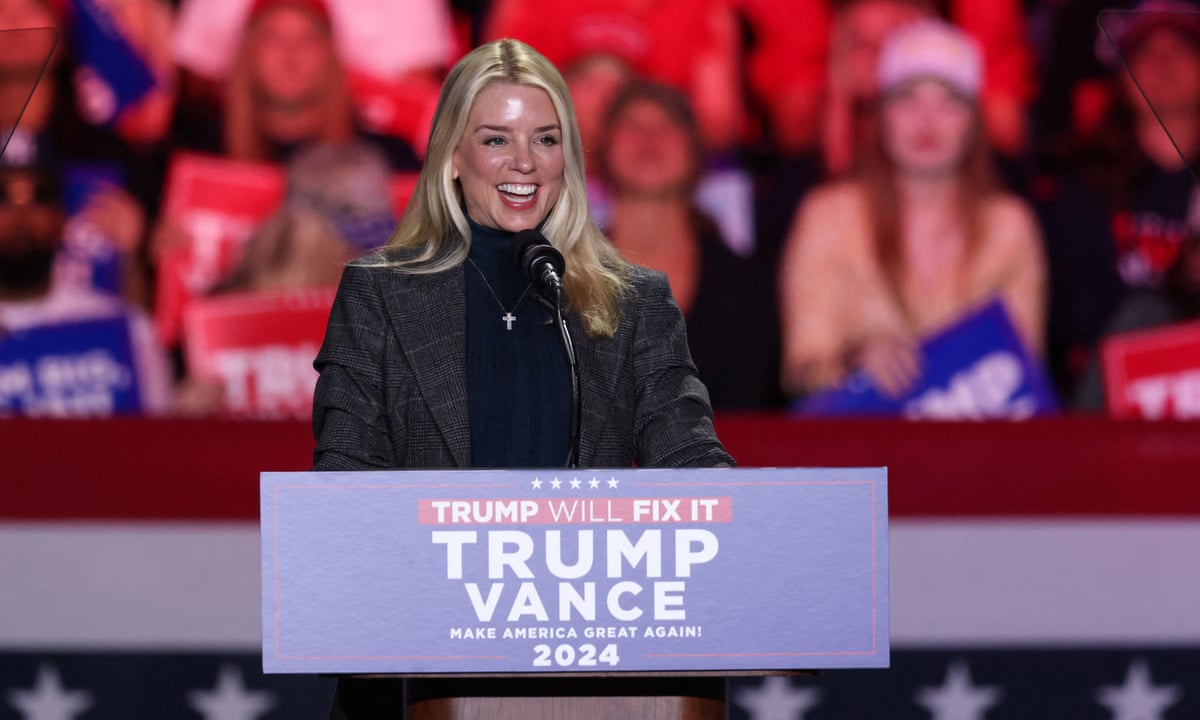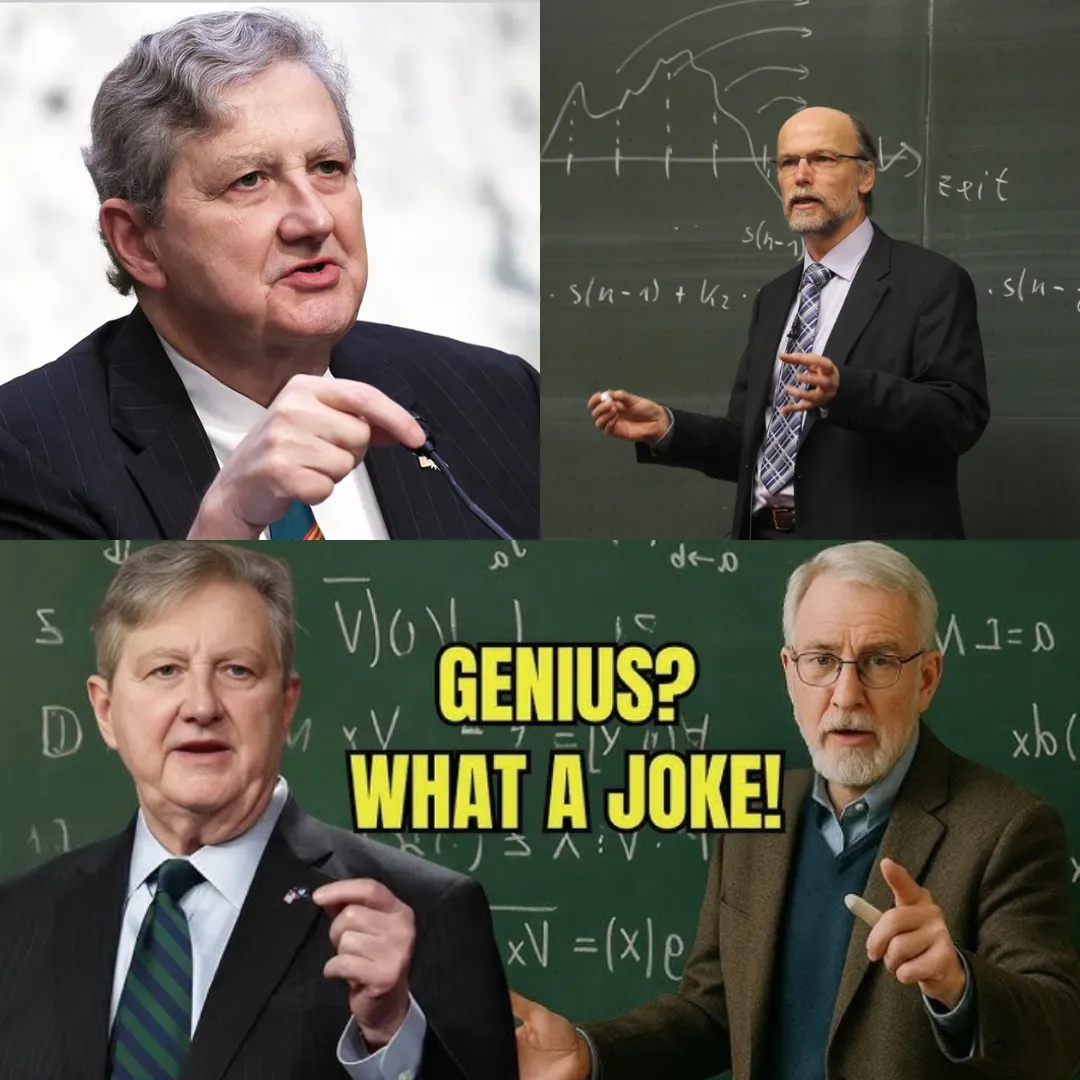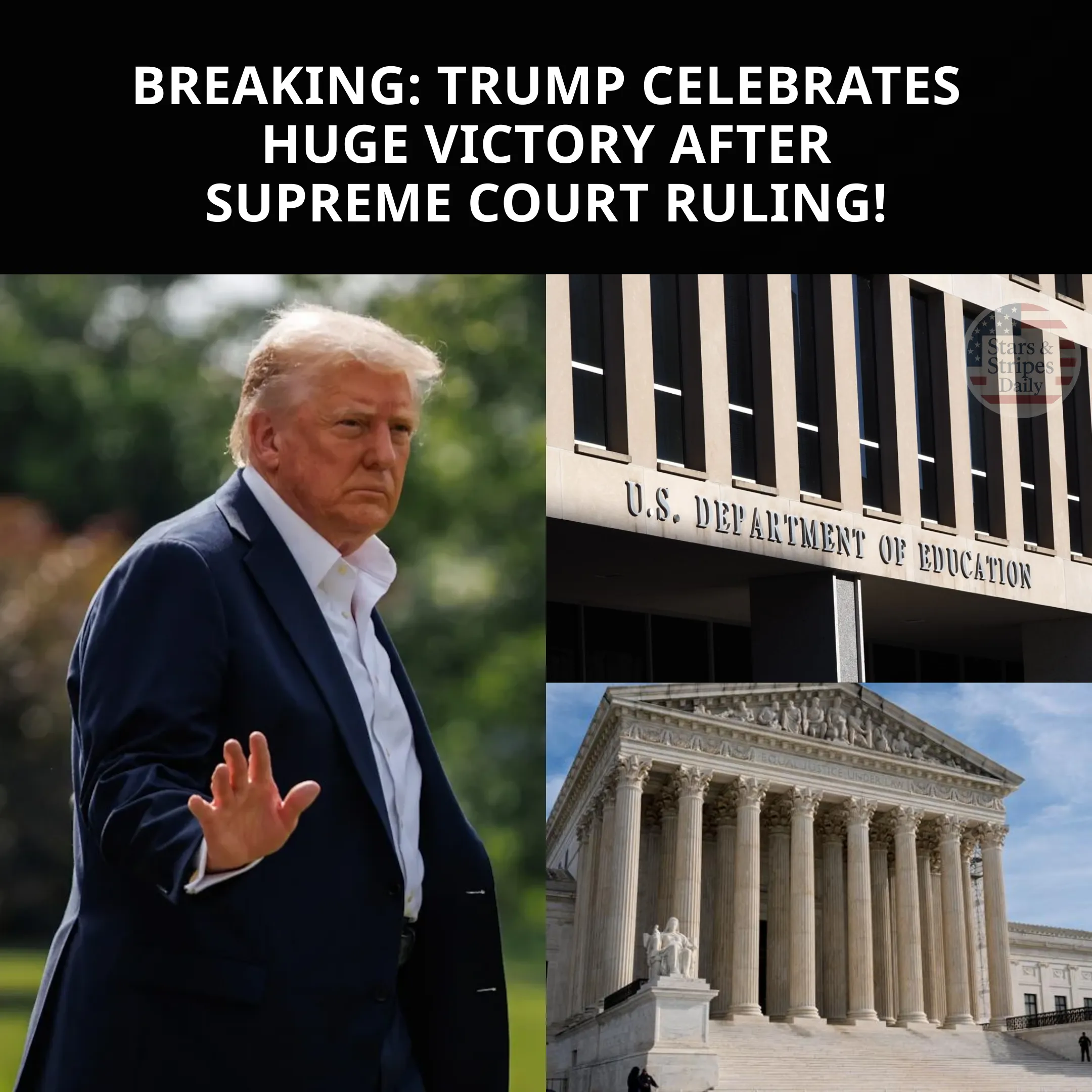President Donald Trump has launched a remarkable public rebuke of his own Attorney General, Pam Bondi, for failing to move swiftly against his political opponents.
The criticism, delivered in a series of posts on his Truth Social platform, has placed extraordinary pressure on the Department of Justice and sparked renewed debate over the independence of America’s top law enforcement office.
The controversy began when Trump took to Truth Social to address Bondi directly, complaining that his attorney general had failed to bring charges against some of his most prominent rivals.
Among those he named were former FBI director James Comey, Democratic California senator Adam Schiff, and New York’s attorney general Letitia James, who successfully pursued a fraud case against Trump and his company.
“I’ve seen more than 30 statements and posts complaining that nothing is going to be done,” Trump wrote. “We can’t delay any longer, it’s killing our reputation and credibility. They impeached me twice, and indicted me five times, OVER NOTHING. JUSTICE MUST BE SERVED, NOW!!!”
The message was unmistakably aimed at Bondi. Trump’s public intervention immediately sent shockwaves through Washington, as presidents have traditionally avoided openly directing the Justice Department on individual prosecutions.
The situation took an unusual turn when Trump’s initial post disappeared from his feed, prompting speculation that it may have been intended as a private message. However, hours later it reappeared with some references clarified.
Observers concluded that the president had intended the message to be public all along, signaling his impatience with Bondi and his demand for swift action.

The move underscored Trump’s unconventional use of social media to communicate not only with the public but also with his own cabinet officials, bypassing traditional channels of governance.
Following his harsh words, Trump quickly sought to soften the blow. In a follow-up post, he praised Bondi as “a GREAT job, very careful, very smart,” but reiterated that her office needed reinforcements.
He proposed nominating Lindsey Halligan, a lawyer who once represented him personally and now serves as a White House aide, to take over as prosecutor in the Eastern District of Virginia.
Trump’s endorsement of Halligan signaled his desire to install loyalists in key roles to accelerate prosecutions. The Virginia district has been involved in sensitive investigations into both Comey and Letitia James, making it a central battleground for Trump’s grievances.
The timing of Trump’s intervention coincided with the resignation of Erik Siebert, the Virginia prosecutor previously tasked with overseeing inquiries into Comey and James.
Siebert had reportedly told colleagues he did not believe the evidence was strong enough to justify charges. According to sources, Trump had privately expressed frustration with Siebert’s stance and publicly declared he wanted him out.
Siebert’s departure cleared the way for Halligan’s potential nomination, aligning the Justice Department’s leadership more closely with Trump’s agenda. But it also raised alarms among legal experts who warned that prosecutorial independence was being eroded.
Bondi, a longtime Trump ally who took over as attorney general during his second term, has been under mounting pressure for weeks. Members of the MAGA movement have grown impatient with what they view as her cautious approach.
Representative James Comer, the Republican chair of the House Oversight Committee and a staunch Trump supporter, recently told Fox News that the Justice Department already had enough evidence to pursue charges against Schiff.
“The power lies within the Department of Justice now to hold these people accountable,” Comer declared. “If they’re allowed to get away with this, everybody in America that’s watched Fox News and other conservative networks over the past four years are going to be disappointed.”
Bondi’s reluctance to act decisively has made her a target of criticism from within Trump’s own political base.
One flashpoint has been Bondi’s refusal to release further documents related to the FBI’s investigation into convicted sex offender Jeffrey Epstein. Activists within the MAGA movement had demanded more transparency, but Bondi resisted, citing legal constraints and national security concerns.
Trump himself defended Bondi’s position on the Epstein files, but the dispute highlighted the delicate line she must walk—balancing legal caution with the political demands of a president who thrives on swift, dramatic action.
Bondi also recently faced condemnation from free speech advocates on the right after pledging to prosecute individuals for hate speech in the wake of conservative activist Charlie Kirk’s assassination.
While her comments reflected growing concerns about politically motivated violence, some on the right accused her of betraying First Amendment principles.
Far-right activist Laura Loomer seized on Trump’s Truth Social post as validation of her campaign against Bondi. “He is urging her to take action. Now it’s public,” Loomer said, framing the president’s criticism as proof that Bondi was under direct orders from Trump to act more aggressively.
Speaking to reporters as he departed the White House for a conservative dinner at Mount Vernon, Trump reiterated his impatience.
“One way or the other—they’re guilty, they’re not guilty—we have to act fast,” Trump said. “If they’re not guilty, that’s fine. If they are guilty or if they should be charged, then they should be charged, and we have to do it now.”
The comments reinforced the sense of urgency Trump has injected into the Justice Department, with critics warning that his approach risks undermining due process.
Trump’s frustration is rooted in his long-running animosity toward several high-profile Democrats and former officials. Schiff, who led the first impeachment inquiry into Trump, remains one of his most despised adversaries.
Comey, who oversaw the FBI’s investigation into Russian interference in the 2016 election, has long been accused by Trump of disloyalty and corruption.
Letitia James, the New York attorney general, successfully prosecuted a civil fraud case against Trump and his company, securing significant financial penalties. Her pursuit of Trump has made her a villain in MAGA circles and a central figure in the president’s narrative of persecution.
For Trump, Bondi’s inability—or unwillingness—to bring charges against these figures represents a failure to deliver justice and satisfy his political base.
Trump’s public intervention has reignited debates about the independence of the Justice Department. Traditionally, presidents avoid commenting on active investigations to prevent the appearance of political interference.
By contrast, Trump has repeatedly pressured the department to pursue his rivals and dismissed prosecutors who resist his agenda.

Legal scholars warn that this pattern erodes the credibility of American institutions. “The Justice Department cannot be seen as a political tool,” one former prosecutor told reporters. “If prosecutions are dictated by political demands rather than evidence, the rule of law itself is at risk.”
Even within the Republican Party, Trump’s pressure campaign has sparked debate. Hardline allies like Comer insist that prosecutions are overdue, while more cautious Republicans worry that undermining the Justice Department could backfire.
Some warn that if Republicans normalize political prosecutions, Democrats may follow suit when they regain power.
Still, Trump’s dominance within the party ensures that few Republicans openly challenge him. Most prefer to quietly support Bondi while publicly echoing Trump’s calls for accountability.
Amid the uproar, Pam Bondi herself has remained silent. She has not issued a public statement or responded to Trump’s posts, leaving Washington guessing about her next move.
Her silence may reflect the precariousness of her position. Openly defying Trump could cost her political standing, while acceding to his demands risks undermining her credibility as the nation’s top law enforcement official.
The episode encapsulates the tension at the heart of Trump’s presidency: the clash between political loyalty and institutional independence. Trump’s insistence on “acting fast” reflects his impatience with legal processes, while Bondi’s caution underscores the constraints of the office she holds.
For Trump’s supporters, the Justice Department’s hesitation represents weakness. For critics, Trump’s pressure campaign represents authoritarian overreach. The outcome will shape not only Bondi’s tenure but also the future of America’s justice system.
President Trump’s sharp criticism of Attorney General Pam Bondi has exposed deep rifts within his administration and ignited a broader debate over the rule of law.
By publicly demanding prosecutions of his rivals, Trump has blurred the lines between politics and justice in ways unseen in modern American history.
Whether Bondi bends to his pressure or maintains her cautious approach will determine not only her fate but also the credibility of the Justice Department.
In the meantime, Trump’s intervention has energized his supporters, alarmed his critics, and once again thrust the question of political prosecutions into the center of national debate.
As Washington braces for the next move, one thing is certain: the relationship between Trump and Bondi has become a defining test of the balance between loyalty to a president and fidelity to the principles of justice.






